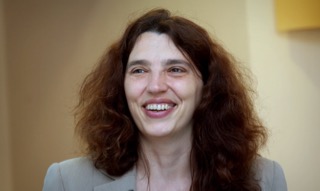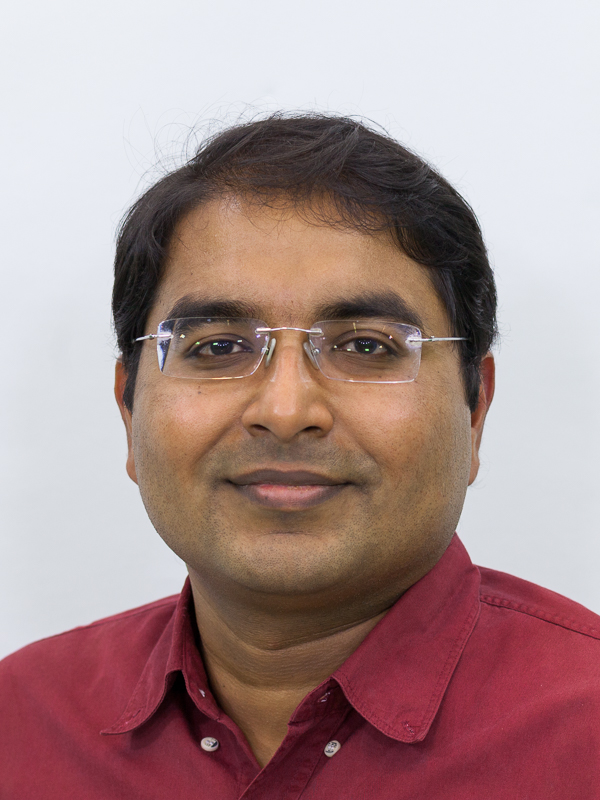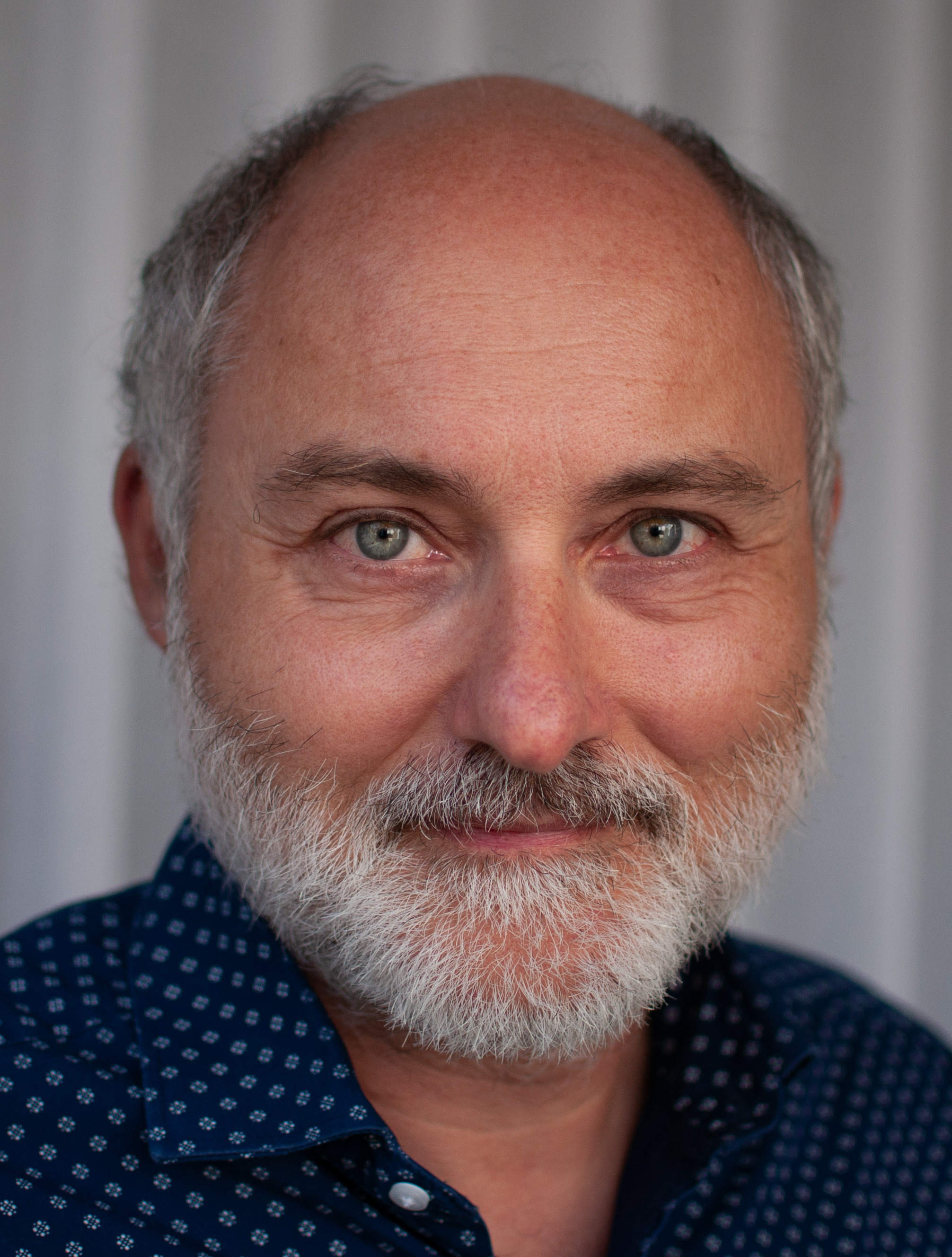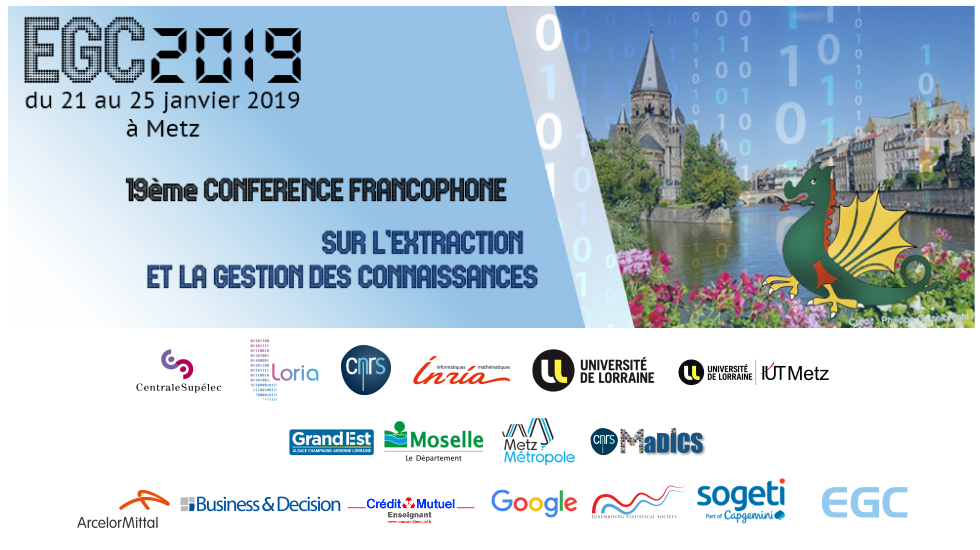
Conférence > Conférenciers invités
Frank van Harmelen, président d'honneur,
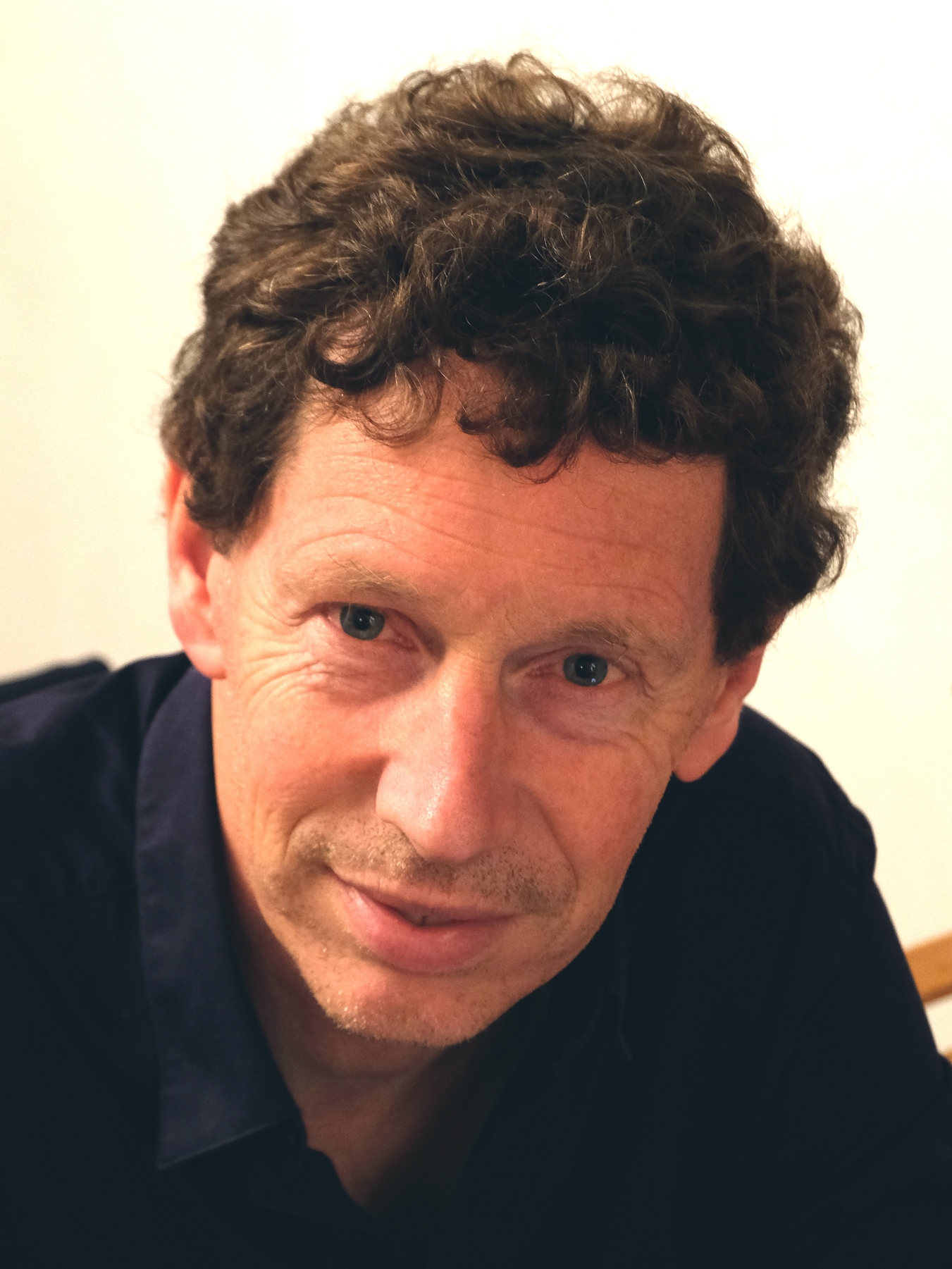
Position actuelle : professeur, dirige l'équipe Knowledge Representation & Reasonning du département d'informatique de l'université VU d'Amsterdam, directeur de l'institut "The Network Institute"
Page web : https://www.cs.vu.nl/~frank.van.harmelen/
Support de présentation : Franck-Van-Harmelen-EGC-2019
Titre de la présentation : Combining learning and reasoning: new challenges for knowledge graphs
Résumé:
The question on how to combine learning with reasoning is widely seen as one of the major challenges for AI. Knowledge Graphs are now well established as a formalism for knowledge representation and reasoning, with large scale adaptions in industry (Google search, Apple's Siri, Amazon, Uber, Airbnb, BBC, Reuters, and many others).
Besides their use for reasoning tasks, knowledge graphs have also shown promise as a formalism to combine reasoning with learning. They have been used as a source of labels for semi-supervised learning, machine learning has been used to generate knowledge graphs, using knowledge graphs can be used to construct post-hoc explanations for machine learning, to name just a few. Central questions in this talk will be: what is the progress that has been made on combining knowledge graphs with machine learning to date, and what are the promises and challenges in both the near and the long term?
Ioana Manolescu
Position actuelle : directrice de recherche INRIA DR1, à la tête de l'équipe projet INRIA/LIX CEDAR, enseignant à l'école polytechnique
Page web : http://pages.saclay.inria.fr/ioana.manolescu/
Support de présentation : Ioana-Manolescu-EGC-2019
Titre de la présentation : Computational fact-checking: state of the art, challenges, and perspectives
Résumé:
The tremendous value of Big Data has been noticed of late also by the media, and the term "data journalism'' has been coined to refer to journalistic work inspired by digital data sources. A particularly popular and active area of data journalism is concerned with fact-checking. The term was born in the journalist community and referred the process of verifying and ensuring the accuracy of published media content; more recently, its meaning has shifted to the analysis of politics, economy, science, and news content shared in any form, but first and foremost on the Web. A very lively area of digital content management research has taken up these problems and works to propose foundations (models), algorithms, and implement them through concrete tools. In my talk, I will show why I believe the data and knowledge management communities should get involved, cast computational fact-checking as a concent management problem, present some of the research results attained in this area, and point out areas where more work is needed. This talk is mostly based on research carried within the ANR ContentCheck project (http://contentcheck.inria.fr)
Krishna P. Gummadi
Position actuelle : professeur, à la tête de l'équipe Networked Systems, Max Planck Institute for Software Systems (MPI-SWS), Allemagne
Page web : https://people.mpi-sws.org/~gummadi
Support de présentation : Krishna-Gummadi-EGC-2019
Titre de la présentation : Foundations for Fair Algorithmic Decision Making
Résumé :
Algorithmic (data-driven learning-based) decision making is increasingly being used to assist or replace human decision making in a variety of domains ranging from banking (rating user credit) and recruiting (ranking applicants) to judiciary (profiling criminals) and journalism (recommending news-stories). Recently concerns have been raised about the potential for discrimination and unfairness in such algorithmic decisions. Against this background, in this talk, I will discuss the following foundational questions about algorithmic unfairness:
- How do algorithms learn to make unfair decisions?
- How can we quantify (measure) unfairness in algorithmic decision making?
- How can we control (mitigate) algorithmic unfairness? i.e., how can we re-design learning mechanisms to avoid unfair decision making?
Roberto Di Cosmo
Position actuelle: directeur de Software Heritage, Inria et professeur d'Informatique à Paris Diderot, membre de l'IRIF
Page web : www.dicosmo.org
Support de présentation : Roberto-Di-Cosmo-EGC-2019
Bio:
Professeur d'Informatique à l'Université Paris Diderot, après avoir enseigné plusieurs années à l'Ecole Normale Supérieure de Paris, il est actuallement detaché chez Inria. Après une longue histoire de contributions à la recherche en Informatique, dans des domaines allant de la logique à la programmation parallèle, il s'intéresse maintenant aux problèmes nouveaux posés par l'essor du Logiciel Libre, et en particulier aux grandes masses de code. Promoteur de l'adoption du Logiciel Libre, il a créé le Groupe Thématique Logiciel Libre dans le Pole de compétitivié Systematic à Paris, qui a financé plus de 40 projets de R&D depuis 2007, et l'IRILL, une structure de recherche de pointe sur le Logiciel Libre. En 2016, il a été à l'origine de Software Heritage, une initiative qui vise à construire l'archive universelle de tout le code source publiquement disponible.
Titre de la présentation : Software Heritage: que faire avec tout le code source du monde?
Résumé :
Software Heritage est une initiative à but non lucratif dont l’objectif ambitieux est de collecter, préserver et partager le code source de tous les logiciels jamais écrits, avec leur historique de développement complet, en construisant une base de connaissances logicielle universelle. Software Heritage répond à une variété de besoins: préserver nos connaissances scientifiques et technologiques, améliorer le développement et la réutilisation des logiciels pour la société et l’industrie, favoriser la science ouverte et construire une infrastructure essentielle pour des études logicielles reproductibles à grande échelle. Nous avons déjà collecté plus de 4 milliards de fichiers sources uniques provenant de plus de 80 millions d'origines. Manipuler ce gigantesque ensemble de données est une mission complexe et nécessite de nouvelles approches pour stocker et requeter l'information d'une manière compatible avec la croissance explosive du développement logiciel collaboratif. Dans cette conférence, nous explorons quelques uns des nouveaux défis et opportunités que présente Software Heritage.
